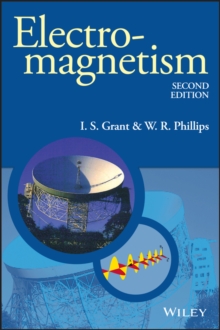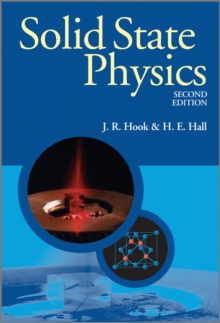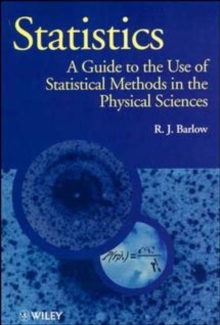
Physics of Energy Sources Hardback
by George C. (University of Manchester, UK) King
Part of the Manchester Physics Series series
Hardback
Description
Physics of Energy Sourcesprovides readers with a balanced presentation of the fundamental physics needed to understand and analyze conventional and renewable energy sources including nuclear, solar, wind and water power.
It also presents various ways in which energy can be stored for future use.
The book is an informative and authoritative text for students in the physical sciences and engineering and is based on a lecture course given regularly by the author. With the ever increasing demand for sustainable, environmentally-friendly and reliable sources of energy, the need for scientists and engineers equipped to tackle the challenges of developing and improving upon commercially viable energy sources has never been more urgent.
By focusing on the physical principles governing energy production, storage, and transmission, this book provides readers with a solid foundation in the science and technology of energy sources. Physics of Energy Sources features include: Analyses of conventional and renewable energy sources in terms of underlying physical principlesIntegrated application of a wide range of physics, from classical to quantum physicsCoverage of nuclear, wind, wave, tidal, hydroelectric, geothermal and solar power, including many practical systemsConsideration of efficiency for power production as well as energy storage and transportationConsideration of key environmental issues Worked examples in text, and problems & solutions to encourage understandingDerivation of formulae with a minimum of mathematical complexity
Information
-
Available to Order - This title is available to order, with delivery expected within 2 weeks
- Format:Hardback
- Pages:424 pages
- Publisher:John Wiley & Sons Inc
- Publication Date:02/06/2017
- Category:
- ISBN:9781119961673
Information
-
Available to Order - This title is available to order, with delivery expected within 2 weeks
- Format:Hardback
- Pages:424 pages
- Publisher:John Wiley & Sons Inc
- Publication Date:02/06/2017
- Category:
- ISBN:9781119961673










